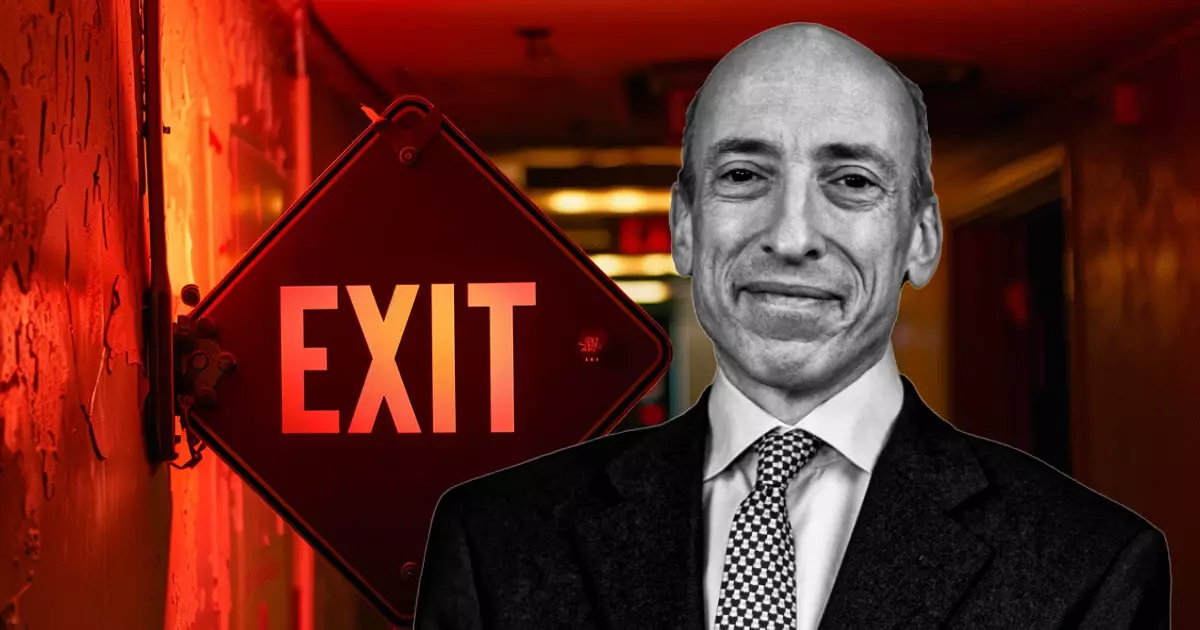Gary Gensler is set to conclude his role as Chairman of the U.S. Securities and Exchange Commission (SEC) on January 20, 2025, coinciding with the inauguration of President-elect Donald Trump. This announcement marks a significant transition within the agency that oversees the nation’s financial markets. Gensler, who assumed his position in April 2021, reflects on his tenure as a profound honor, characterizing the SEC as a vital organization committed to safeguarding investors and maintaining market integrity. He highlighted the agency’s mission-driven culture, noting the dedication of its staff to protect everyday Americans and uphold the robustness of the U.S. capital markets.
During Gensler’s chairmanship, the SEC took an assertive stance on regulating the increasingly influential cryptocurrency sector. His administration has been marked by a wave of enforcement actions against significant crypto firms, including well-known exchanges like Binance and Coinbase. These actions arose from accusations that these entities operated without proper registration as securities brokers or clearinghouses. Gensler’s approach not only aimed to clarify the regulatory landscape for cryptocurrency but also demonstrated the SEC’s resolve to adapt to the evolving financial technology environment.
Interestingly, the announcement of Gensler’s departure seems to have had an immediate positive impact on certain cryptocurrencies, with XRP, among the top twenty digital assets by market capital, experiencing a notable price increase. This reaction may indicate a sentiment shift within the market, possibly anticipating a change in regulatory atmosphere with new leadership.
One of the hallmark achievements of Gensler’s tenure was the eventual approval of spot Bitcoin and Ethereum exchange-traded funds (ETFs), a significant development in the mainstream acceptance of cryptocurrency. Although he initially expressed concerns that such products might exacerbate market manipulation, a pivotal legal ruling from the U.S. Court of Appeals for the District of Columbia Circuit ultimately supported the approval of these ETFs. This decision underscored the court’s critique of the SEC’s regulatory rationale, describing it as “arbitrary and capricious.” Such contrasts in stance highlight the complexities and challenges Gensler faced while navigating the tumultuous waters of crypto regulation.
As Gensler prepares for his exit, attention shifts to the SEC’s future leadership. President-elect Trump’s decision on Gensler’s successor remains pending, leaving the Commission divided between Democrat and Republican appointees. Potential candidates to take the helm include former Binance.US executive Brian Brooks and Robinhood’s chief legal officer Dan Gallagher, among others. This upcoming leadership change raises questions about the regulatory approach towards cryptocurrency and financial markets as the SEC may recalibrate its strategy in light of new priorities under a different administration.
Gensler’s legacy is characterized by vigorous enforcement and evolving regulatory frameworks, leaving a profound impact on the SEC and the broader financial system. The transition that lies ahead represents an opportunity for redefined policies and approaches within the agency, reflecting the ongoing developments within the ever-evolving financial landscape.

